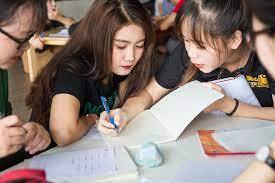Specialized Tuition for Students with Learning Disabilities
Tailored Approaches for Unique Learning Needs
Introduction:
In the diverse spectrum of learners, students with learning disabilities often face unique challenges that require specialized approaches. Traditional teaching methods may not always cater to their specific needs, making it imperative to adopt tailored strategies.
This article delves into the realm of specialized tuition for these students, highlighting the importance of personalized approaches and the transformative impact of individualized instruction.
Specialized Tuition for Students with Learning Disabilities
1. Understanding Learning Disabilities:
- Broad Spectrum: Learning disabilities encompass a range of challenges, from dyslexia and dyscalculia to attention deficit disorders and auditory processing issues.
- Unique Needs: Each disability presents its own set of challenges, necessitating a nuanced understanding and approach.
2. The Importance of Personalized Approaches:
- Individual Strengths and Weaknesses: Recognizing a student’s strengths and areas of struggle allows for targeted interventions.
- Building Confidence: Personalized instruction can boost a student’s self-esteem, making them more receptive to learning.
3. Benefits of Individualized Instruction:
- Pace of Learning: Specialized tuition can be tailored to a student’s pace, ensuring they fully grasp concepts before moving on.
- Multisensory Approaches: Incorporating visual, auditory, and kinesthetic methods can enhance comprehension and retention.
4. Role of Technology in Enhancing Learning:
- Assistive Tools: Software like speech-to-text converters, screen readers, and interactive apps can aid in the learning process.
- Adaptive Learning Platforms: AI-driven platforms can adjust content in real-time based on a student’s performance, ensuring lessons cater to their specific needs.
5. Collaborative Learning Environments:
- Peer Support: Group sessions with peers facing similar challenges can foster a supportive learning environment.
- Shared Resources: Collaborative tools and platforms allow students to share insights, strategies, and resources.
6. Training for Educators:
- Specialized Skills: Educators working with students with learning disabilities require specialized training to understand and address their unique needs.
- Continuous Professional Development: Regular workshops and courses can ensure educators stay updated with the latest methodologies and tools.
7. Parental Involvement and Support:
- Home Environment: Creating a conducive learning environment at home, with necessary resources and tools, can significantly aid a student’s progress.
- Open Communication: Regular communication between educators and parents ensures alignment in strategies and goals.
8. Challenges and Overcoming Them:
- Stigma and Misunderstandings: Addressing misconceptions about learning disabilities is crucial to create an inclusive environment.
- Resource Limitations: Ensuring schools and tuition centers are equipped with necessary tools and trained personnel can be challenging but is essential.
9. Case Study: Embracing Multisensory Learning:
Jane, diagnosed with dyslexia, struggled with traditional reading methods. Her specialized tutor introduced a multisensory approach, incorporating auditory readings, tactile letter tracing, and visual aids. This holistic method not only improved her reading skills but also boosted her confidence.
10. Future Prospects:
- Integration of AR and VR: Augmented and Virtual Reality can create immersive learning environments tailored to individual needs.
- Global Collaboration: Online platforms can connect students with learning disabilities worldwide, fostering a global support community.
11. The Role of Assessment in Specialized Tuition:
- Diagnostic Assessments: Before initiating a tailored approach, it’s crucial to understand the specific challenges a student faces. Diagnostic tests can pinpoint areas of struggle and strength.
- Continuous Monitoring: Regular assessments ensure that the teaching methods are effective and allow for timely course corrections.
12. Incorporating Life Skills and Emotional Support:
- Beyond Academics: Students with learning disabilities often benefit from lessons in life skills, such as time management, organization, and social interactions.
- Counseling and Therapy: Emotional support, through counseling sessions, can address feelings of frustration, anxiety, or low self-esteem often associated with learning challenges.
13. Community Building and Advocacy:
- Support Groups: Creating spaces where students and parents can share experiences, challenges, and solutions fosters a sense of community and mutual support.
- Raising Awareness: Advocacy initiatives can educate the broader community about learning disabilities, dispelling myths and promoting inclusivity.
14. Transitioning to Higher Education and Careers:
- Guidance and Counseling: Specialized tutors can provide guidance on transitioning to colleges or universities that offer support for students with learning disabilities.
- Career Counseling: Identifying careers that align with a student’s strengths and providing necessary training can pave the way for professional success.
15. The Broader Impact on Society:
- Inclusivity and Diversity: By supporting students with learning disabilities, society becomes more inclusive, recognizing and valuing diverse abilities.
- Economic Benefits: Empowered individuals contribute positively to the economy, whether through employment, entrepreneurship, or other avenues.
Conclusion:
The journey of specialized tuition for students with learning disabilities is multifaceted, encompassing academic, emotional, and social dimensions. By adopting a holistic approach, educators, parents, and communities can ensure that these students not only achieve academic success but also thrive in all aspects of life.
In a world that often prioritizes conformity, specialized tuition stands as a testament to the beauty of individuality. By recognizing, understanding, and catering to unique learning needs, we move closer to a future where every individual, regardless of their challenges, is celebrated, supported, and empowered to achieve their dreams.
Specialized Tuition for Students with Learning Disabilities by Tuition Domain

